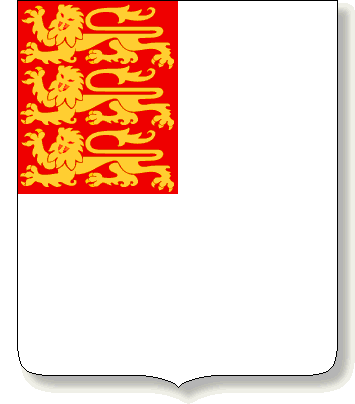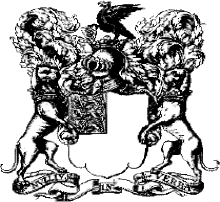

The Royal Society (1660)
Argent, on a quarter Gules, the three lions of England in pale Or.
Motto :
Nullius in Verba ("take nobody's word for it").
[ The above leopard design is courtesy of Fleur-de-lis Designs ]


Argent, on a quarter Gules, the three lions of England in pale Or.
Motto :
Nullius in Verba ("take nobody's word for it").
[ The above leopard design is courtesy of Fleur-de-lis Designs ]

The founding of the Royal Society of London for the Improvement of Natural Knowledge was greatly inspired by Galileo's own Accademia dei Lincei (Lincean Academy) which had been founded in 1603 by the young Frederico Cesi (1585-1630). The motto of the Royal Society was chosen in 1663 to proclaim the basic creed of the scientific revolution, overtaking the scholastic tradition of the middle ages. Nullius in Verba : Take nobody's word for it, especially not the word of Aristotle (whom the scholastics had once declared infallible).
The latin words themselves were taken from the introduction to a famous collection of essays addressed to his patron, Maecenas, by Horace (Quintus Horatius Flaccus, 65-8 BC) Epistles I.i, 1.13 :
|
Ac ne forte roges quo me duce, quo lare tuter, nullius addictus iurare in verba magistri, quo me cumque rapit tempestas, deferor hospes. |
Do not venture to ask whose directions I follow, for I am not sworn to go by the words of any teacher. In a storm, I shall find my own way to a safe harbor. |
Fifty years earlier, such a flamboyant creed of skepticism would have provoked the ire of the Inquisition. In 1660, the World was finally ripe for untethered rational scientific investigations.
British members of the Royal Society are called Fellows of the Royal Society and the suffix "FRS" that they attach to their names on formal occasions carries considerable prestige in scientific circles. The equivalent for scientists who are not British subjects is: Foreign Member of the Royal Society (FMRS).
Wikipedia | Hooke and the Lynxes
